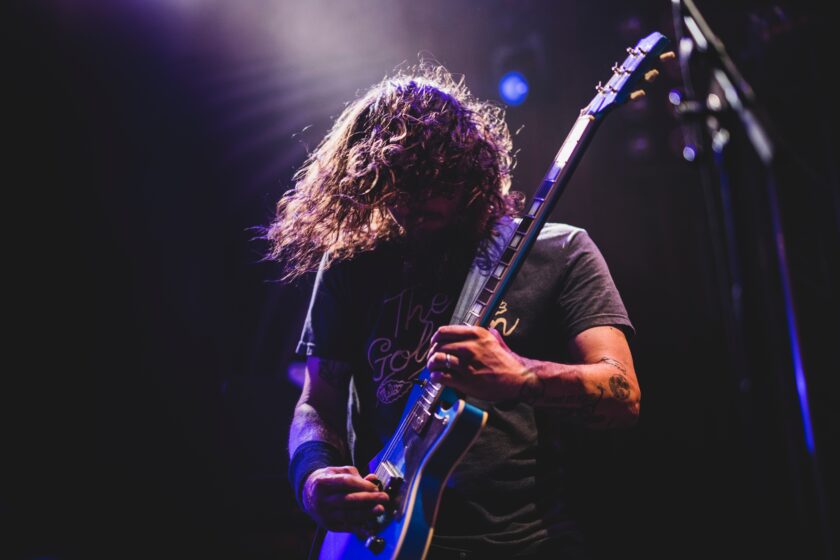Are you in a hurry to play an instrument?
Whether you teach yourself or take lessons, every person has to start with the basics. Nevertheless, by avoiding common mistakes, doing the right exercises and working to targets, you can learn the guitar fast.
Click here if you are looking to book a Guitar Lesson in Southampton near you and read on, for our tips to help you pick up a stringed instrument, quickly.
How to learn the guitar – fast
There has never been a better time to learn the guitar. Free resources are everywhere. There are thousands of YouTube videos and apps that can help you learn to play.
For speedy progress, you should be practising for around an hour a day. Divide your time up into some different areas and try to learn something new and more difficult each day. And always warm-up on your guitar.
In the beginning, concentrate on the basics and make sure that you are learning good habits. Then over time expand your repertoire and skill set. You will find that it becomes easier and easier to spend more time on the guitar. Those hours will naturally multiply and you won’t even think about it.
How much time will it take to learn guitar?
If you want to get to a really decent level of proficiency and you are dedicated enough you can be well on your way within three months. Becoming a masterful guitar player will take you quite a bit longer.
It takes a lot longer to play the guitar if you don’t practice. Learn as much as you can about your guitar and music theory, teach yourself if you have to. Implement your knowledge with regular practice and set yourself goals.
You can actually learn something meaningful on the guitar within 5 minutes, you just need a plan to help you get off and strumming. What every wannabe guitarist has to remember, is that even the absolutes masters of their craft had to start somewhere.
click here to Book a guitar lesson now
The best way to learn the guitar
The best way to learn is with a tutor. It may not be the fastest way because you likely can’t have lessons every day. Particularly if you are completely new to music, it’s well worth investing in one on one local guitar tuition.
Not only does this give you the opportunity to field all your questions to a professional rather than the internet – it means you can get some vital feedback on your bourgeoning technique. And if you lack the discipline to work on it alone (which very many musicians do, especially when they start), having someone else to motivate you and keep you on track, will be essential.
What is the fastest way to learn guitar?
Make practising part of your life. You don’t need to be militantly structured. Your hour a day of practice can comprise 15 minutes before work, 20 minutes at lunchtime, another 15 in the early evening and then 10 minutes before bed.
The key to improving quickly is to set very simple, very achievable and very realistic goals.
Anyone can play the guitar. You do need some basic rhythmic skills to play in time. However, if you can clap in time to your favourite tune, you can play the guitar. Practice and perseverance are the absolute bedrock and any latent musical talents you have will come bursting to the fore.
Learn guitar fast tips
Becoming proficient is a case of repetition and perseverance. In order to keep yourself interested, you should try and play some of your favourite songs.
Even the most difficult, technical songs on the planet can be stripped back to very humble beginnings of just a few notes or simple chords. Learn these and you can play along, in a simple fashion.
If you aren’t quick enough yet to make all the chord changes, just play the first chord of each bar, then add in new ones as you learn the transitions.
Each and every time you play along is adding to your muscle memory. Your brain is logging that progress, enabling you to play more and more autonomously. Keep it up and you will be shredding in no time.
Keeping your guitar in tune will make learning far quicker. Invest in a decent tuner. Learn how to use it properly. There are all kinds available. Some of them can be clipped onto the headstock of the guitar, others require you to plug in your lead. Getting into the habit of tuning your guitar means that over time you will instinctively know when your guitar drifts out of tune. It is essential for when you eventually play live.
Guitar progress timeline
Setting goals and accomplishing them creates a really satisfying positive feedback loop. This cements your progress and makes you more likely to go on and achieve your bigger goals. It doesn’t just apply to guitar playing, either.
Make your goals clear, write them down and then set about ticking them off. They can be as simple as memorising the shape of an E chord. Or learning to move from an A chord to an E chord. Get a few of these lined up for the week and then tick them off as you do them.
In just a few short weeks you can go from absolutely no knowledge of playing basic songs and even writing your first guitar parts.
Being able to play along with a song from start to finish is a magical milestone for every new guitar player – set a date by which you plan to do this and map out a timeline to get there. With determination and focus, you can have the whole track licked in a couple of hours.
Even if you are just strumming the simplest pattern but you get all the chords and changes right, it proves you are well on the way to becoming a proper guitar player. Not only that, but you’ll feel like a rock god when you’ve done it for the first time. It’s a great feeling.
Stages of playing the guitar
Here are the stages you’ll need to work through, as you learn and progress.
Learn the string notes
This is your first task as a guitar player. Here’s a shortcut to remembering them.
Elephants
And
Donkeys
Grow
Big
Ears
Learn guitar scales
Learning scales, like every other guitar-related learning curve, can be easily broken down into manageable chunks. The important thing to remember is that scales are absolutely essential to advanced guitar work.
The sooner you start learning them, the more sense they will make. There are countless apps and websites that can help you. Make learning a scale one of your goals and add them into your daily practice routine.
Play guitar chords
Chords are groups of notes played or ‘strummed’ together to create a harmony that resonates as a specific note. Each note has a corresponding chord which can be played in multiple places on the fretboard.
There are open chords, which are played with a combination of notes and open strings on and around the first fret. There are also bar chords, where your first finger creates a bar and mimics a fret. The rest of your fingers then create the shape of the chord. These can be moved up and down the fretboard.
Knowing your chord names, positions and alternatives can breathe new life into old songs and add a touch of flair to your initial basic ideas. Remember that even the most complex songs are built from very simple chords. They are the foundation of songwriting.
Learn TAB
TAB is a guitar-specific notation system that uses horizontal lines to represent each string and then a number placed on each of those, to signify the fret that you play. It’s a lot simpler than learning how to read standard music because you don’t need to figure out where on the fretboard you should be playing – it’s done for you.
You can find TAB notation for pretty much every famous song online. There are communities of musicians who figure out new songs that come out. The great thing about TAB is that it opens up almost every song to budding new guitar players who want to study a genre they really love.
While you don’t necessarily need to be able to read music to play the guitar, it’s still really helpful to know the basics of music theory. And don’t worry, it’s not all bookish learning. Getting to grips with musical keys, time signatures, tempos, crotchets and rests (as well as plenty of others) are all essentials for understanding when to play and in what manner you are required to play.
Learning to play the guitar is not easy. There will be times when it becomes frustrating, especially if you’re doing it in a concentrated period. When that happens, return to something fun. Go back a step if you need to and reconnect with the guitar. Listen to your favourite tune again and get re-inspired. But keep picking that guitar up. And keep trying. It will pay off.
Related Questions
What is the easiest instrument to learn?
The recorder is often played by primary kids as it’s so simple. In terms of strings, the ukulele is an easy entry point. But this will depend on your personal and innate skills. Some find wind easier than strings or keys for example. The best route is to try out a few and see which comes naturally.
What guitar should I start with?
A good but simple entry-level guitar that allows you to get the basics down is your best option. If you are buying your very first, then cheap is absolutely fine. Some come in packs with an amplifier, which could be useful to start with. Find a model that will stay in tune and is easy to play
Is it hard to learn guitar?
It completely depends on your natural musical ability and commitment. Learning another instrument first, such as bass guitar or the piano can make it easier. Overall, learning to play the guitar takes effort and dedication. In time it will feel easy but you have to overcome some milestones first.
How much do guitar tutors charge?
An in-person lesson will usually cost in the region of £30 for 45 minutes or £40 for 60 minutes. Click here if you are looking to book a Guitar Lesson in Southampton near you.
Call us now on 023 8065 8373 or email us on reception@recordingstudiosouthampton.co.uk for our introductory offer for new clients of ‘Two free guitar lessons when you purchase three lessons; 5 for 3 deal’
We also offer Bass guitar lessons in Southampton, Singing lessons for beginners and Music Production lessons at River Studios.

